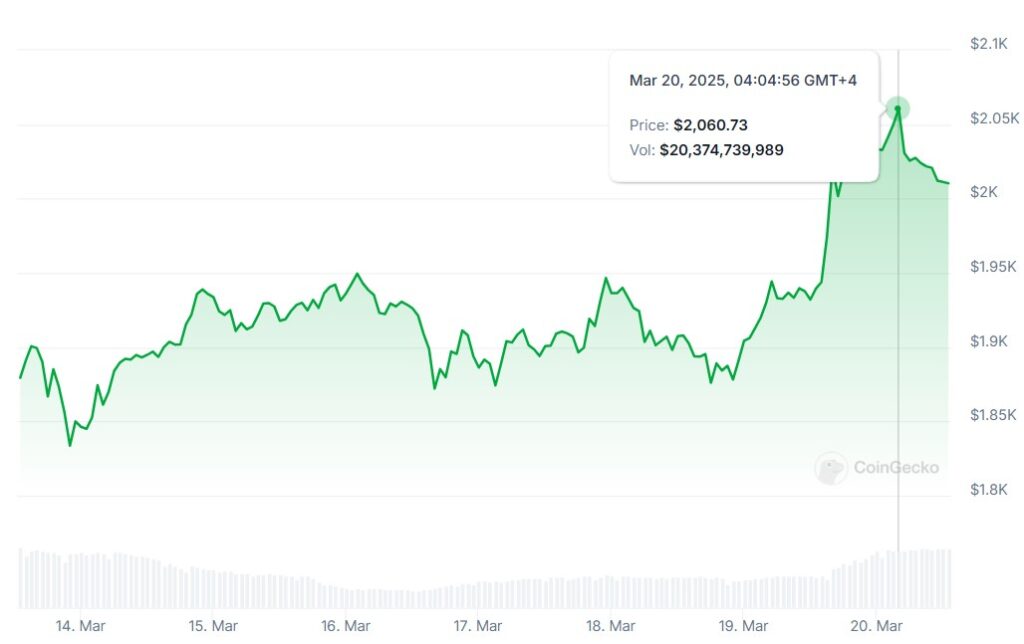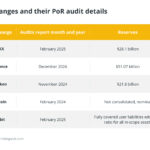In a significant development for the cryptocurrency industry, Coinbase has announced its position as the largest node operator on the Ethereum network, managing 11.42% of the total staked Ether (ETH). This information comes from a recent performance report issued by the exchange, which indicates that it has staked approximately 3.84 million ETH, valued at around .8 billion, through its validators as of March 3.
“Coinbase is now the single largest node operator,” remarked Anthony Sassano, host of The Daily Gwei. He noted that while Lido, a popular staking platform, represents a larger collective, individual node operators like Coinbase make up a more substantial share.
In terms of performance, Coinbase reported an impressive validator uptime of 99.75%, exceeding its target of 99%. This indicates that its validators, which perform essential network functions, are operational almost all the time. Such reliability is bolstered by a recent upgrade that ensures continuous operation even during maintenance activities, reflecting the company’s commitment to security and efficiency.
Furthermore, Coinbase has positioned its validators in diverse regions, including Japan, Singapore, Ireland, Germany, and Hong Kong, to support a decentralized and truly distributed Ethereum blockchain. In comparison to the network average, Coinbase’s participation rate and block signing performance are also notable, with figures of 99.75% and 99.76%, respectively.
With Coinbase solidifying its role in the Ethereum ecosystem, the implications for both the exchange and the broader market continue to unfold, capturing the interest of investors and cryptocurrency enthusiasts alike.
Coinbase’s Dominance on the Ethereum Network
Key insights from Coinbase’s recent performance report highlight its significant influence on the Ethereum network and the implications for cryptocurrency investors.
-
Largest Node Operator:
Coinbase controls 11.42% of the total staked Ether, making it the largest node operator on the Ethereum network.
-
Staked Ether Value:
Coinbase has staked 3.84 million Ether (ETH), valued at approximately .8 billion.
-
Validator Performance:
The company reported a validator uptime and participation rate of 99.75%, exceeding network averages.
-
Decentralized Validator Distribution:
Coinbase maintains validators in multiple regions including Japan, Singapore, Ireland, Germany, and Hong Kong, aiming to support a decentralized Ethereum blockchain.
-
Ethereum Price Surge:
Following the report, the price of Ether saw a significant increase, surpassing ,000 and reflecting heightened market activity.
Anthony Sassano noted the impact of Coinbase’s stake, indicating it enables the exchange to exert considerable influence over network governance.
Coinbase Emerges as Crypto Powerhouse: Analyzing Its Dominance in Ethereum Staking
Recent insights from Coinbase have positioned the exchange as a dominant player in the cryptocurrency landscape, particularly as the largest node operator on the Ethereum network. By managing 11.42% of the total staked Ether, Coinbase is showcasing its robust influence, especially given its substantial staked assets totaling approximately .8 billion. However, as competition within the crypto space intensifies, it’s crucial to assess both the advantages and potential drawbacks of Coinbase’s leading position.
Competitive Advantages: Coinbase’s impressive validator uptime and participation rates—both at 99.75%—underscore its technical prowess, surpassing network averages. This reliability not only boosts investor confidence but also highlights Coinbase’s commitment to maintaining network integrity. The distribution of its validators across multiple global regions—including Japan, Singapore, and Europe—suggests that the platform is consciously working towards decentralization, a significant selling point as users become increasingly aware of the pitfalls of centralized systems. Furthermore, with the recent surge in ETH prices following this report, it’s evident that Coinbase has the potential to drive market sentiment positively.
Competitive Disadvantages: However, these advantages come with caveats. The centralization inherent in Coinbase’s operations may raise eyebrows among the crypto purists, who advocate for more decentralized networks. Comparatively, staking platforms like Lido, though collectively larger, operate with a model that some may argue is less susceptible to centralization concerns. Should institutional investors feel apprehensive about Coinbase’s centrality, this could hinder their willingness to engage with the platform fully.
The landscape created by Coinbase’s dominance could benefit newer investors looking for a dependable staking option, as the platform’s reliability and security might provide an appealing entry point into the Ethereum ecosystem. Still, risk-averse participants might find Coinbase’s centralized approach less appealing, potentially prompting them to explore decentralized alternatives like Lido, which offers a more distributed node operation.
In the bigger picture, as regulatory scrutiny on centralized exchanges continues to loom, Coinbase’s top position could invite additional scrutiny. While this could become a hurdle for Coinbase itself, it might inadvertently create an opportunity for decentralized protocols to gain traction, appealing to those seeking alternatives to conventional exchanges. Hence, the competitive ramifications of Coinbase’s prominence in the Ethereum staking landscape could trigger significant shifts in user preferences across the crypto sphere.

















